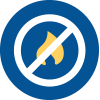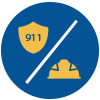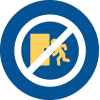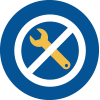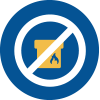Safety
Important Propane Safety Information
Please read and follow the safety rules outlined on this page. Share this information with your family to help keep everyone safe and to reduce the risk of serious and potentially fatal injury, fire, or explosion.
Please click here to visit the propane education site for consumers
FOR HIGH SNOWFALL AREAS:
Information you need to know about propane safety and how to keep your family safe in areas that experience significant snowfall.
Please click here to download the guide
What is Propane?
Propane (also called LPG – liquefied petroleum gas – or LP gas) is a liquid fuel stored under pressure. In most systems, propane is vaporized to a gas before it leaves the tank. Propane is flammable when mixed with air (oxygen) and can be ignited by many sources, including open flames, smoking materials, electric sparks and static electricity. Severe freeze burn or frostbite can result if propane liquid comes in contact with your skin.
Propane is heavier than air. If it leaks, the gas will collect first in low places,
so mount gas detectors near the floor.
Propane is naturally odorless; the smell is created with a chemical additive.
If you’re unfamiliar with this odor, call us.
If you haven’t used a propane-fueled appliance recently, check it carefully.
Be sure to sniff around the bottom of the appliance for that distinctive propane smell.
If You Smell Gas
Immediately put out all smoking materials and other open flames. Do not operate lights, appliances, telephones, or cell phones. Flames or sparks from these sources can trigger and explosion or a fire.
Get everyone out of the building or area where you suspect gas is leaking.
Turn off the main gas supply valve on your propane tank if it is safe to do so. To close the valve, turn it to the right (clockwise).
From a neighbor’s home or other nearby building away from the gas leak, call your propane retailer right away. If you can’t reach your propane retailer, call 911 or your local fire department.
Stay away until your propane retailer, emergency responder, or qualified service technician determines that it is safe to do so.
Before you attempt to use any of your propane appliances, your propane retailer or a qualified service technician must check your entire system to ensure that it is leak-free.
Can You Smell it?
On rare occasions, propane can lose its odor. Several things can cause this including: The presence of air, water, or rust in a propane tank or cylinder, the passage of leaking propane through the soil. Since there is a possibility of odor loss or problems with your sense of smell, you should respond immediately to even a faint odor of gas.
Contact Blue Flame Gas Company to receive a brochure with a scratch and sniff of what propane smells like. Have everyone in your household smell this sample and know what propane smells like.
Propane Gas Detectors
• Buy only units that are listed by Underwriters Laboratories (UL).
• Follow the manufacturer’s instructions regarding installation and maintenance.
• Never ignore the smell of propane, even if the detector is not sounding an alarm.
Carbon Monoxide and Your Safety
You can’t taste or smell CO, but it is a very dangerous gas, produced when any fuel burns. High levels of CO can come from appliances that are not operating correctly, or from venting system or chimney that becomes blocked.
High levels of CO can make you dizzy or sick. In extreme cases, CO can cause brain damage or death. Symptoms of CO poisoning include: Headache, Dizziness, Fatigue, Shortness of Breath and Nausea.
1. If you or a family member shows physical symptons of CO poisoning, get everyone out of the building and call 911 or your local fire department.
2. If it is safe to do so, open windows to allow entry of fresh air, and turn off any appliances you suspect may be releasing CO.
• Have Blue Flame check your propane appliances and related venting systems annually, preferably before the heating season begins.
• Install UL-listed CO detectors on every level of your home.
• Never use a gas oven or range-top burners to provide space heating.
• Never use portable heaters indoors unless they are designed and approved for indoor use.
• Never use a barbecue grill (propane or charcoal) indoors for cooking or heating.
• Regularly check your appliance exhaust vents for blockage.
• Sooting, especially on appliances and vents
• Unfamiliar or burning odors
• Increased moisture inside of windows
Lighting Pilot Lights
If the pilot goes out, or is very difficult to light, there may be a safety problem. DO NOT try to fix the problem yourself. It is strongly recommended that only a QUALIFIED SERVICE TECHNICIAN light any pilot light that has gone out.
There is a risk of starting a fire or an explosion if you light a pilot light yourself. Carefully follow all of the manufacturer’s instructions and warnings concerning the appliance before attempting to light the pilot.
Appliance Maintenance
Only a qualified service technician has the training to install, inspect, service, maintain, and repair your appliances. Have your appliances and propane system inspected just before the start of each heating season.
Check the vents of your appliances to be sure that flue gases can flow easily to the outdoors: clear away any insect or bird nests or other debris. Also, clear the area around your appliances so plenty of air can reach the burner for proper combustion.
Trying to repair valves, regulators, connectors, controls, or other appliances and cylinder/tank parts, creates the risk of a gas leak that can result in property damage, serious injury, or death.
Certain older appliance connectors may crack or break, causing a gas leak. If you have an appliance that is more than 20 years old, have a qualified service technician inspect the connector. Do not do this yourself, as movement of the appliance might damage the connector and cause a leak.
The pilot light on your propane appliance can ignite vapors from gasoline, paint thinners, and other flammable liquids. Be sure to store and use flammable liquids outdoors or in an area of the building containing no propane appliances.
If you cannot operate any part of your propane system, or if you think an appliance or other device is not working properly, call your propane retailer or a qualified service technician for assistance.
Running Out of Gas
If an appliance valve or gas line is left open, a leak could occur when the system is recharged with propane. If your propane tank runs out of gas, any pilot lights on your appliances will go out. This can be extremely dangerous.
In many states, a propane retailer or a qualified service technician must perform a leak check of your propane system before turning on the gas.

